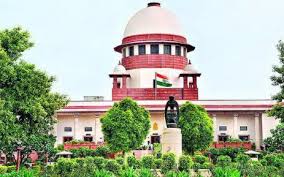New Delhi: The Supreme Court ( Supreme Court ) has issued an interim order on some provisions of the Waqf (Amendment) Act 2025, imposing some very important restrictions on the actions of the central government. Under this order, the government will now be unable to implement some parts of the new law. The court has directed the government to file a reply within 7 days, and has scheduled the next hearing on May 5, 2025. Let us tell you that Solicitor General Tushar Mehta, appearing on behalf of the Central Government, had requested the Supreme Court to give him a week’s time to give a preliminary reply with some documents, after which the court gave him time.
Key points of the Supreme Court’s interim order
The court clarified in its order that the following actions under the Waqf Amendment Act will be stayed till the next hearing:
New appointments in the Waqf Board and Central Waqf Council: No new appointments will be made in the Waqf Board and Central Waqf Council under the provisions of the new law. This means that no new changes, including the appointment of non-Muslim members, will be possible at the moment.
Ban on change in the status of Waqf properties: The court has ordered that the Waqf status of any property declared under ‘Waqf-by-User’ or ‘Waqf-by-Deed’ cannot be removed. This means that the process of declaring such properties as government land or making any change in their ownership will be completely stopped.
Temporary stay on District Magistrate’s investigation: The new law provides that in case of dispute over Waqf property, the District Magistrate will not recognize it as Waqf property until the investigation is completed. The court has put an interim stay on the implementation of this provision, so that the status of such properties will remain as it is.
Order to maintain status quo: The court has directed to maintain the status quo by stopping any change in the existing structure of the Waqf Board and Central Waqf Council and the status of Waqf properties.
Demands of petitioners and opposition’s stand
72 petitions, including petitions by AIMIM leader Asaduddin Owaisi, All India Muslim Personal Law Board, Jamiat Ulama-e-Hind, Dravida Munnetra Kazhagam, Congress MP Imran Pratapgarhi and Mohammad Javed, have been filed to challenge the validity of the Act. The petitioners argue that this law violates Articles 14, 15, 25, 26 and 300-A of the Constitution. The opposition had termed it unconstitutional and discriminatory and demanded an immediate ban.
The new law was recently notified
Let us tell you that the Center had recently notified the Waqf (Amendment) Act 2025. This Act got the approval of President Draupadi Murmu on 5 April after being passed by the Parliament after a heated debate in both the houses. In the Rajya Sabha, 128 members voted in favor of the Waqf Amendment Bill and 95 against it. At the same time, in the Lok Sabha, 288 votes were cast in favor and 232 against it. In this way, this bill was passed by both the houses.
 Indian Thought Latest News & Views
Indian Thought Latest News & Views



